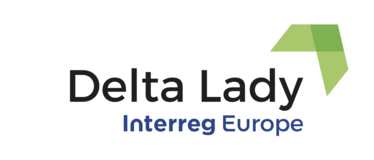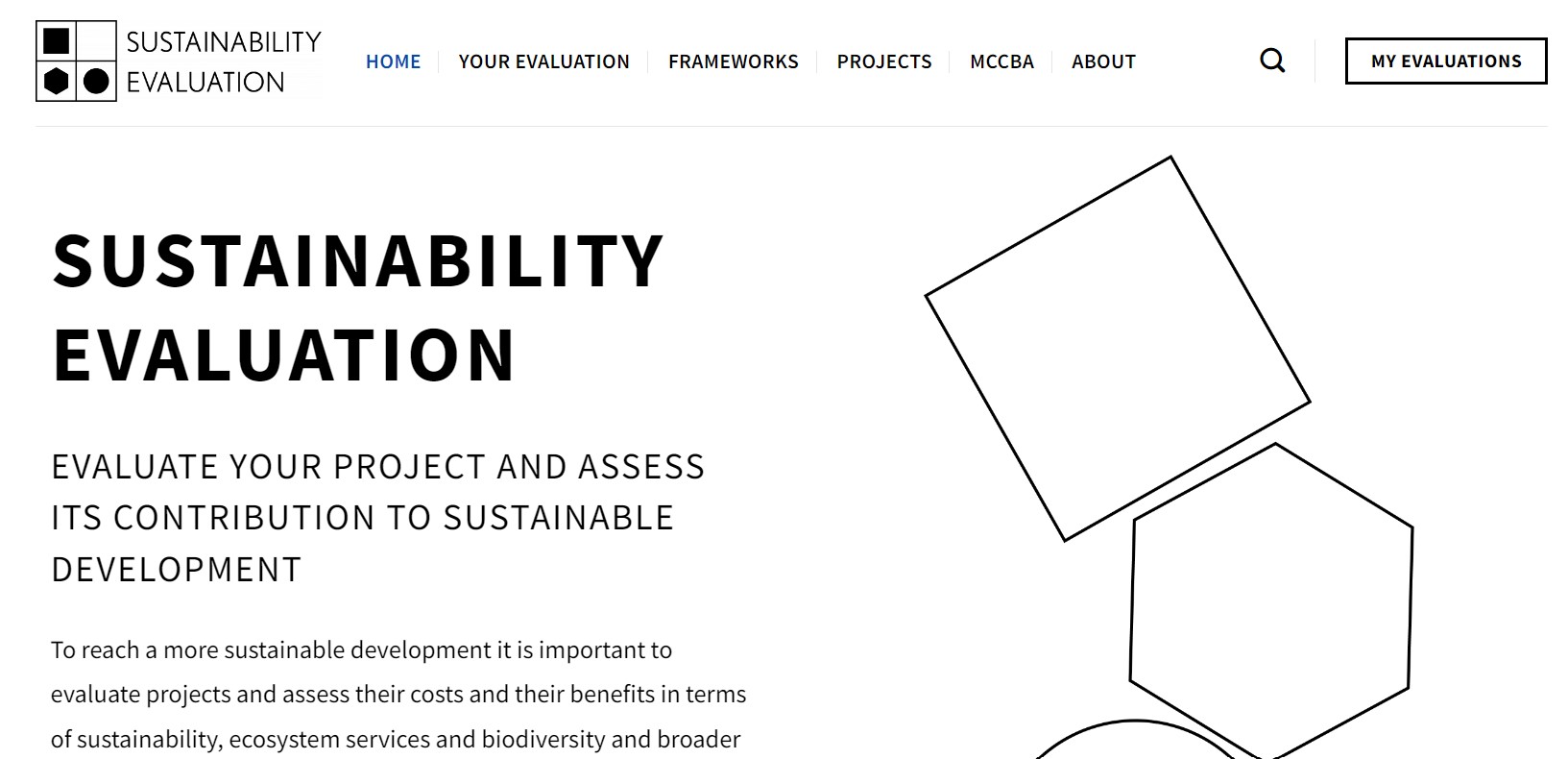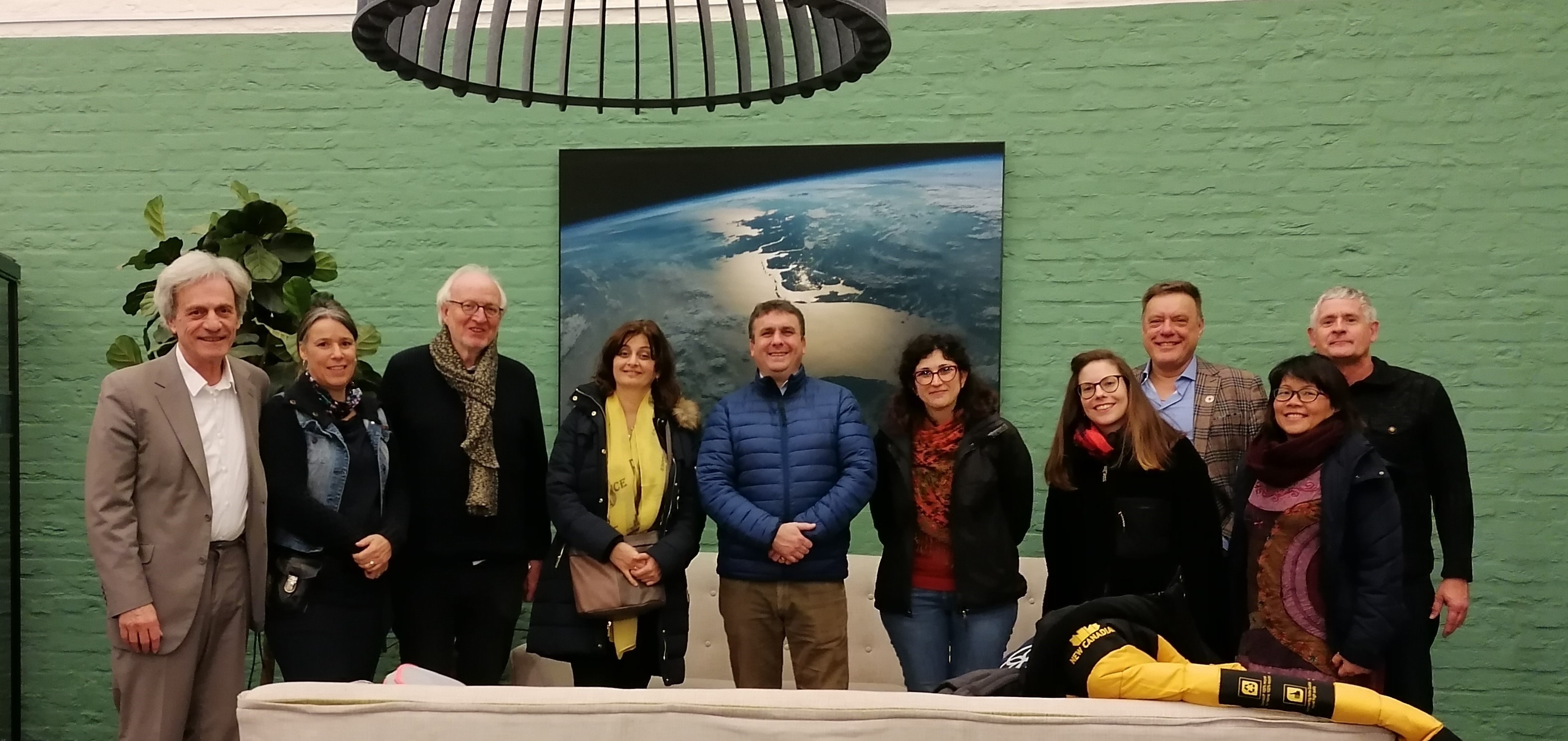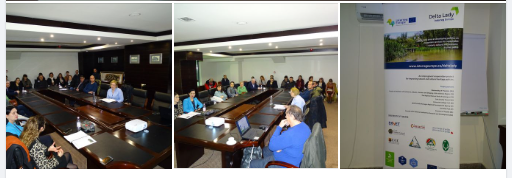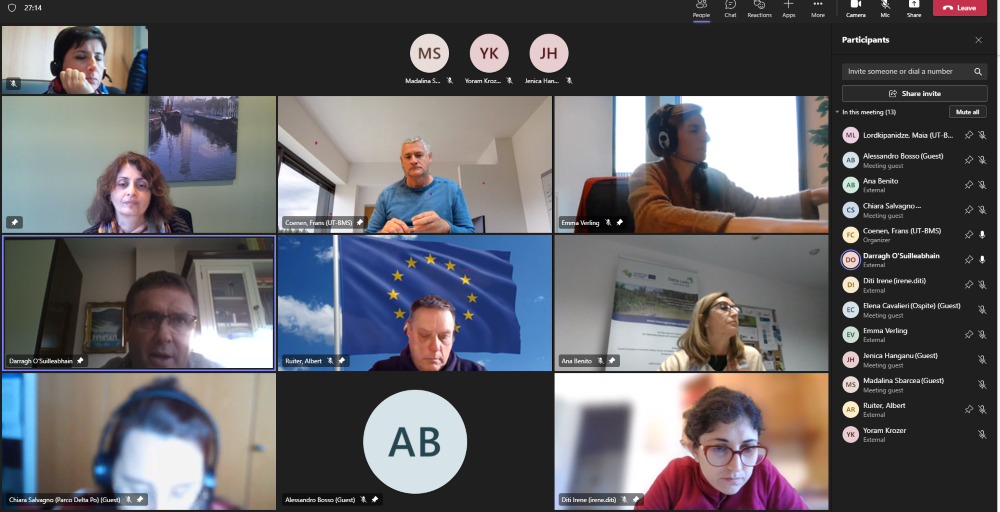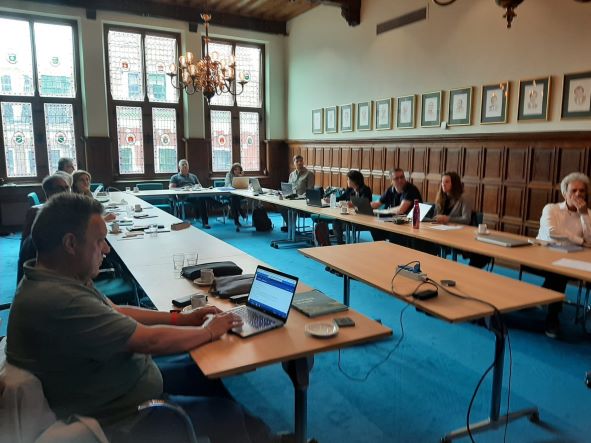The 3rd RSG meeting which took place on 16th of October 2019 in Comacchio, Italy, was a follow-up of the previous meeting held in May 2019. The same participants were invited. In total 18 participants attended the meeting. There were 11 representatives from 7 local public institutions: 6 Municipalities and 1 Union of Municipalities; 2 representatives from the University of Ferrara as technical external assistance of the partner ART-ER. No other categories of stakeholders were present at the meeting because the focus was on the Territorial Plan: local administrations can be considered as the key stakeholders.
The main topic was to share an operative road-map and identify further steps to start the integration of ecosystem services (ES) into the Territorial Plan of the Park. University of Ferrara explained ecosystem services from a technical point of view, showing in particular the economic value of ES, resulting from the recent study. ART-ER presented practical case studies of how ES were implemented by other communities and the possibility of integration of ES in planning activities. Po Delta Park focused on the implementation phase in relation to the Territorial Plan revision phase. The attendants were encouraged to discuss and give feedback on how to manage the operational phase.
Local administrations were particularly interested in their personal tasks in the operational phase and tried to understand what kind of contribution they could give.
Operative tools will be:
- A design team - it will be composed by selected external experts and it will support the Po Delta Park in the formal revision of the Territorial Plan ;
- A Working Group (WG) – it will be coordinated by the Park and composed by Municipalities’ representatives.
A relevant focus was on citizens’ point of view on the values of ES: everyone agreed that, besides ES that can be quantified more easily (such as provisioning ES), there are some with more intangible values, but they represent the real “capital” of the protected area. They agreed on trying to focus on the quantification of these ES, by means of involvement of “public opinion”: project partners proposed a questionnaire to evaluate the willingness to pay of local citizens. Questionnaire received good feedback and the general “green light” to proceed. All municipalities showed their readiness and availability to distribute the questionnaire in their territory.
The participants considered the topic of ecosystem services very interesting and very challenging: they expressed their interest in further exploring the topic. This represents a good starting point for follow up activities.
No obstacles or challenges were observed in planning and performing the meeting: the Park regularly involves and consults municipalities in its activities throughout the year. The meeting went smoothly and every participant was able to take part in the discussion.
Participatory approach will be the key factor to edit the Territorial Plan: municipalities want to be involved in formal planning activities, as foreseen by law, but they want also to give a concrete contribution to general activities related to ES, in particular they care to represent their local communities.
Participants gave a positive feedback and showed a real interest in ES. The feedback and the entire discussion were specific of the policy context of the Po Delta Park because the topic was the addressed policy instrument.
Every municipality involved in the RSG will have a crucial role in the future because they will distribute the questionnaire for local citizens and then will collect filled-in questionnaires. Data elaboration will then be provided by project partners.
From the perspective of the territorial planning phase, each municipality will give its contribution attending the WG, managed by the Po Delta Park.
The main conclusions focused on the relevance to start the operational phase of the revision of the Territorial Plan. Operational phase includes the appointment of a WG and the designation of a group of external experts.
A questionnaire will be distributed to local people to collect data. Great attention has to paid to participation and sharing; everyone’s possible contribution should be enhanced and exploited.
For the next meeting the stakeholders are requested to double check the questionnaire before distribution, examine and propose areas where this tool can be effective. Also, each stakeholder has to appoint a representative to be part of the WG that will follow the operational phase. The aim is to start actions on selected areas of Po Delta Park.
The following meeting will take place in Semester next year; it is not yet planned as it depends on when the minimum target (500) of filled questionnaires will be reached. The best scenario is 1000 filled questionnaires. Next months, further activities will be planned on the basis of this result.
